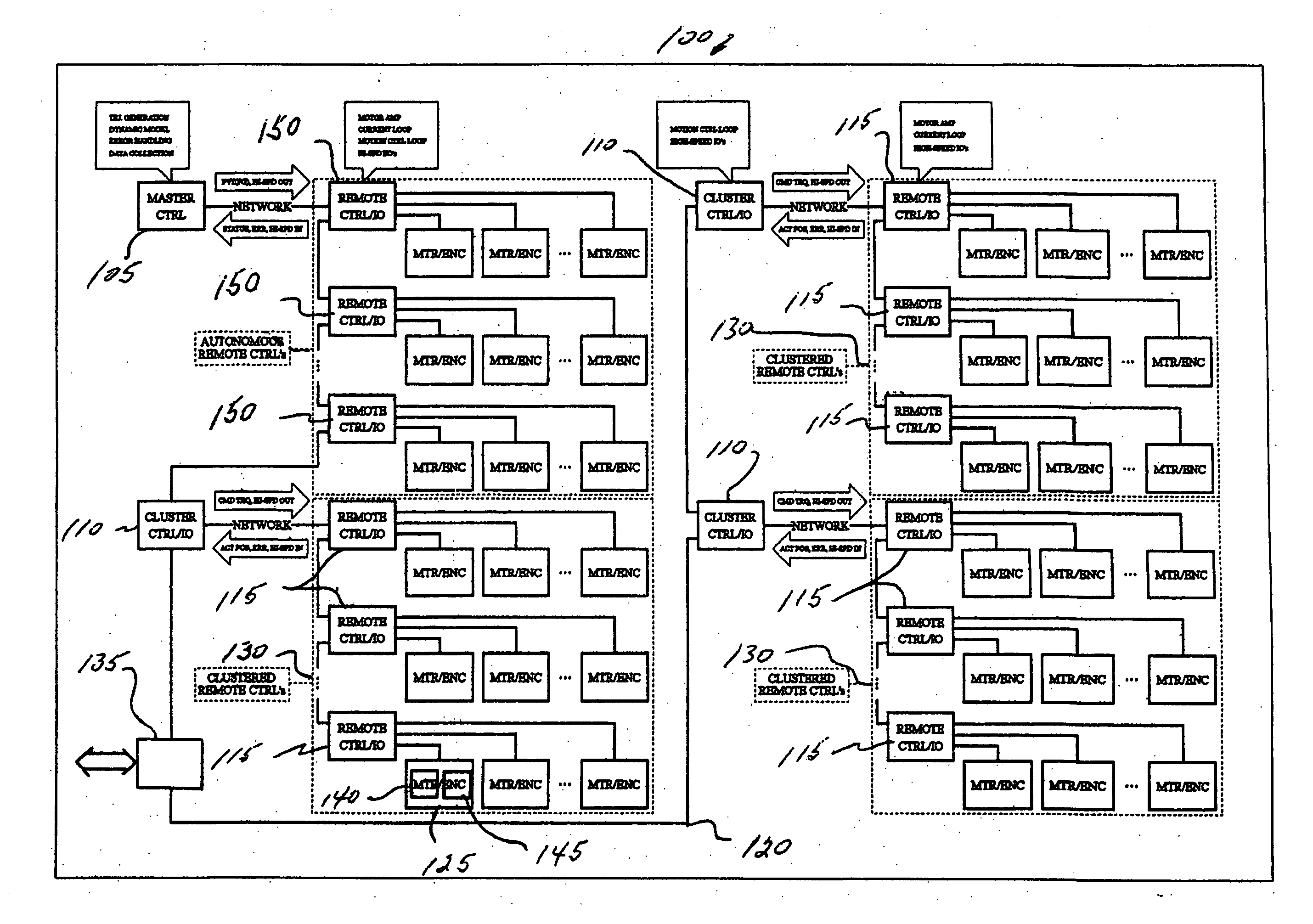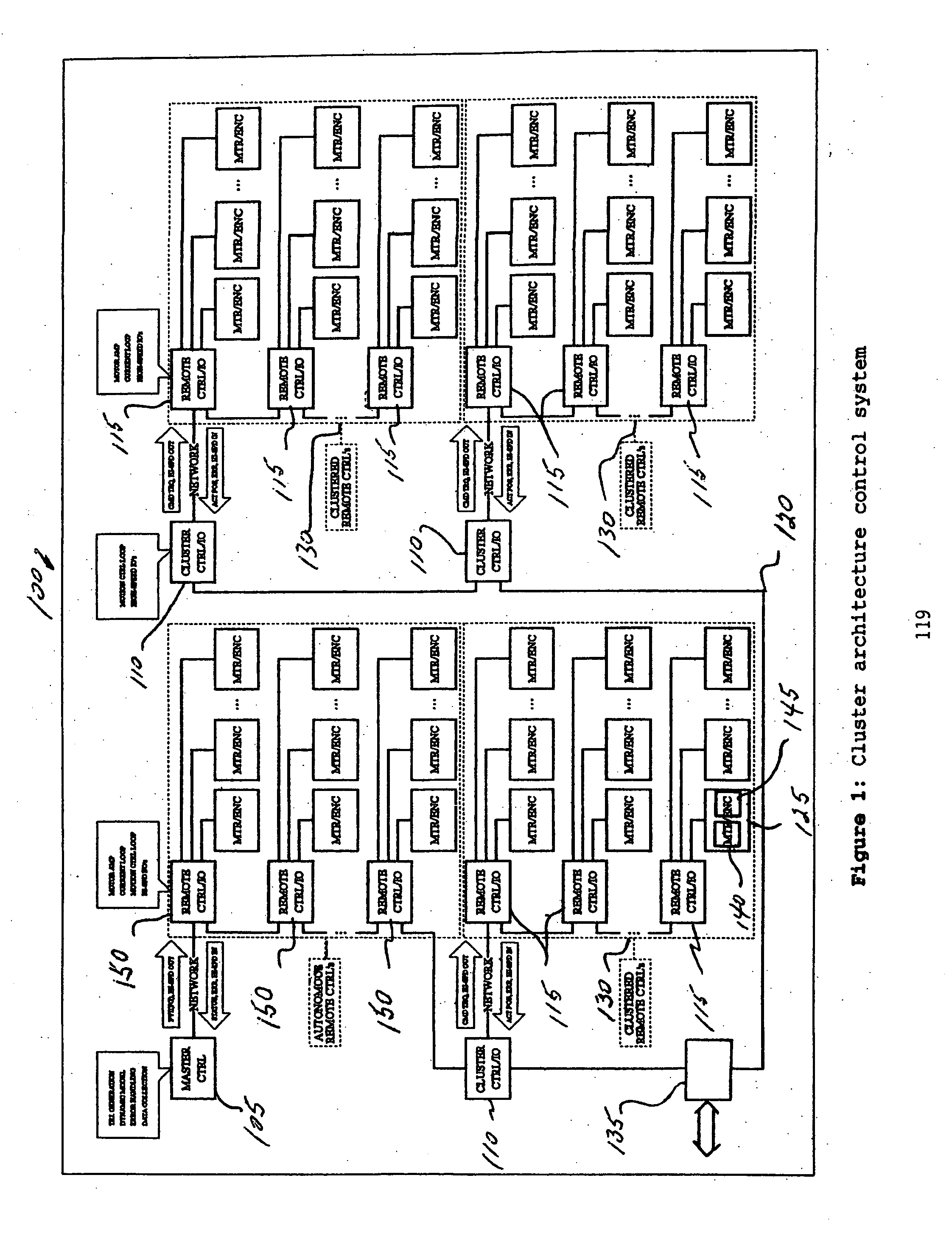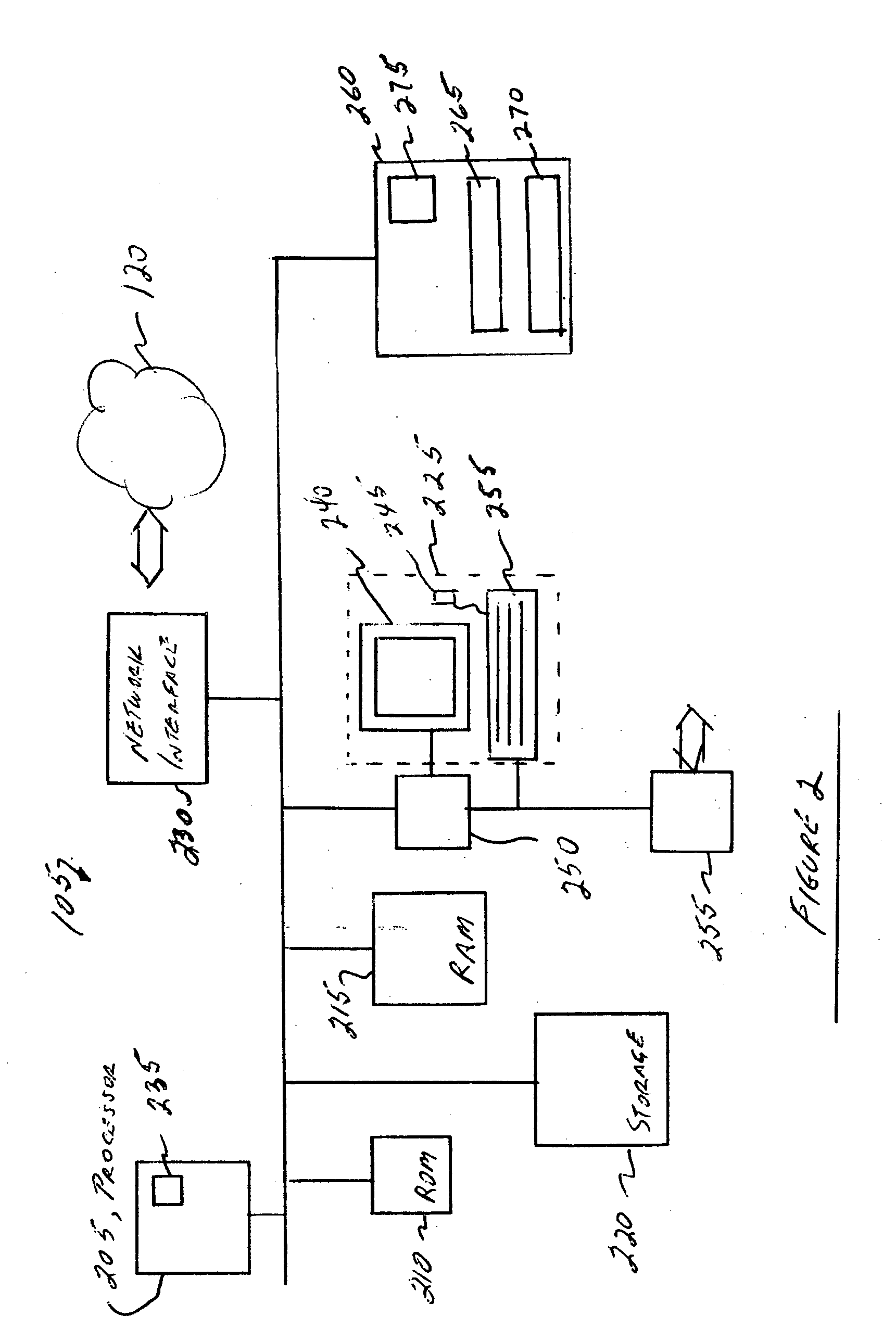Scalable motion control system
- Summary
- Abstract
- Description
- Claims
- Application Information
AI Technical Summary
Benefits of technology
Problems solved by technology
Method used
Image
Examples
Embodiment Construction
[0015] The disclosed embodiments are directed to a control system including a clustered architecture having a master controller, a central control section including one or more first remote controllers under direct control of the master controller and a distributed control section including a cluster controller controlled by the master controller, wherein the cluster controller controls the activities of one or more second remote controllers. Each of the first and second remote controllers are utilized to drive one or more axes.
[0016] The disclosed embodiments are also directed to a method of operating an axis of a control system that includes generating a trajectory for the axis in terms of a position, velocity, and acceleration for each point of a plurality of points on the trajectory, and calculating an inverse dynamic model of the axis to determine a gain value and a feedforward term for each point.
[0017] The disclosed embodiments are further directed to a method of synchroniz...
PUM
 Login to View More
Login to View More Abstract
Description
Claims
Application Information
 Login to View More
Login to View More - R&D
- Intellectual Property
- Life Sciences
- Materials
- Tech Scout
- Unparalleled Data Quality
- Higher Quality Content
- 60% Fewer Hallucinations
Browse by: Latest US Patents, China's latest patents, Technical Efficacy Thesaurus, Application Domain, Technology Topic, Popular Technical Reports.
© 2025 PatSnap. All rights reserved.Legal|Privacy policy|Modern Slavery Act Transparency Statement|Sitemap|About US| Contact US: help@patsnap.com



